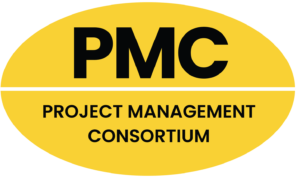September 21 marked Zero Emissions Day – a day dedicated to driving awareness of protecting the planet from harmful emissions. With the built environment responsible for nearly 50% of global carbon emissions – 20% of which come from building materials and construction – sourcing products and materials from manufacturers at the forefront of sustainability can have a great impact on the environment.
We’ve compiled a round-up of the industry’s movers and shakers – Legrand, a leader in electrical solutions; Cosentino, a leader in innovative and sustainable surfaces for the world of design and architecture; CertainTeed, a leading North American manufacturer of building materials; and Kohler, a leader in plumbing and sustainability – committed to driving the change our industry and planet so desperately need.
From those that are reducing greenhouse gas and fossil fuel emissions through alternative forms of energy, to brands boldly transforming how they manufacture with the planet in mind, these are the pioneers to keep in mind for your next project.
Legrand

Photo credit: Legrand
With approximately 60% of electricity coming from burning fossil fuels, coal and natural gas, Legrand®, a global specialist and leading single-source supplier of electrical wiring solutions, is deeply committed to the development of a low-carbon society. By 2030, the manufacturer aims to reduce carbon emissions for its own activities by 50%, across its value chain by 15%, and to ultimately achieve carbon neutrality by 2050. In an effort to help commercial construction professionals build more sustainably, 70% of its product portfolio includes a Product Environmental Profile, detailing how the product improves energy efficiency and reduces energy consumption. For commercial buildings and data centers, Legrand’s smart power distribution units, lighting management solutions and high efficiency products such as UPS and transformers make it easy to track, monitor and reduce energy consumption.
Legrand is also a proud partner of The U.S. Department of Energy (DOE) Better Climate Challenge, composed of 50 organizations across the U.S that are driving real-world action toward a low-carbon future. Among Legrand’s efforts celebrated by the DOE: a 14% improvement in energy intensity across its industrial facilities – contributing to more than $15 billion in cumulative cost savings from Better Climate Challenge participants. Learn more about Legrand’s commitment to sustainability in its fifth annual CSR road map.
Cosentino

Photo credit: Cosentino
As an industry pioneer and disruptor, sustainability has been part of the Silestone® by Cosentino DNA since its inception in 1990. It’s latest advancement: HybriQ® technology — an entirely new product category and manufacturing method for all Silestone products that was developed with the planet in mind. Manufactured using 100% renewable electric energy, zero waste, 99% recycled water, and a minimum of 20% recycled raw materials, the introduction of HybriQ+® as a new hybrid mineral blend marks a bold departure for the North American market in particular – where quartz remains one of the most popular materials. The range of applications goes beyond countertops and is perfect for commercial spaces, including floors, walls and ceilings; building facades; furniture cladding; and more. These high-performance sustainable surfaces offer unrivaled durability to beautifully endure years of everyday wear and tear.
HybriQ+® is just one of the many sustainability initiatives that Cosentino has committed to over the years. The Silestone Sunlit Days collections that launched in 2021, which marked marked the brand’s first-ever carbon neutral collection, built on the ‘Carbon Neutral’ declaration achieved for Cosentino’s entire Dekton® brand as of 2020, which confirms carbon neutrality throughout the entire life cycle of Dekton®, from the extraction of the raw material to the use of the product and the end of its life.
Cosentino’s manufacturing headquarters is also extremely dedicated to ensuring sustainable practices, including housing its own Waste Management and Recovery plant onsite, managing water waste through a “zero waste” approach, reducing energy consumption in the production process by optimizing processes, and implementing improved air purification systems to capture both particles and volatile organic compounds to significantly reduce greenhouse gas emissions.
To learn more about Cosentino’s journey to sustainability, click here.
CertainTeed

Photo credit: CertainTeed
CertainTeed is committed to being the North American leader in light and sustainable commercial building materials, manufacturing eco-conscious products that are high-performing and have a positive impact on the planet. Contributing to a low-carbon future, the company pledges to achieve carbon neutrality by 2050 as part of its responsibility to ensure the longevity of our communities through new products and systems designed to improve energy efficiency and reduce the environmental footprint of our built environment. At the core of its commitment to sustainability in residential manufacturing operations are the principles of industrial ecology, managing energy and water, and reducing waste. All operations of CertainTeed’s L’Anse, Michigan, ceilings plant are powered by a nearby biomass-fueled power plant, with waste heat from the biomass plant utilized in the manufacturing process. What’s more: What’s more: this August, CertainTeed installed new recycling technology at its Palatka, Florida, gypsum plant, increasing recycled content in its wallboard products by 18,000 tons/year while also reducing the site’s carbon dioxide emissions by 2,260 tons/year.
Learn more at certainteed.com/responsible-building
Kohler

Photo credit: Kohler
Kohler Co., a global industry leader with a footprint in six continents, established and committed to a net-zero operations goal, which it set for 2035. Since its implementation in 2008, Kohler has reduced its net greenhouse gas emissions by 54%. In tandem, the manufacturer has reduced its operational energy use by 30 %, waste to landfill by 46%, and its water use by 52%, with 51% of its electricity coming from renewable resources.
Kohler’s sustainability and social impact strategy, “Believing In Better,” enables Kohler to deliver on its environmental, social and governance commitments defined by three pillars: Better Planet, Better Communities and Better Lives. Through this philosophy, Kohler is improving its operational environmental footprint while paying uncompromised attention to designing environmentally friendly products that help its customers and consumers to reduce their own environmental impact.


























